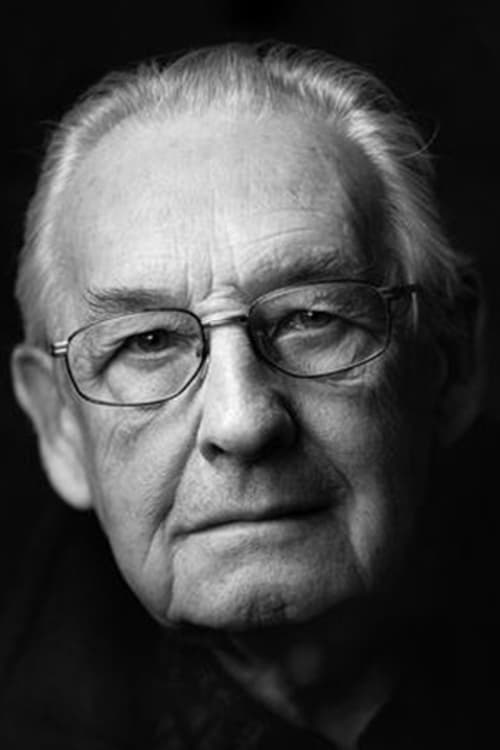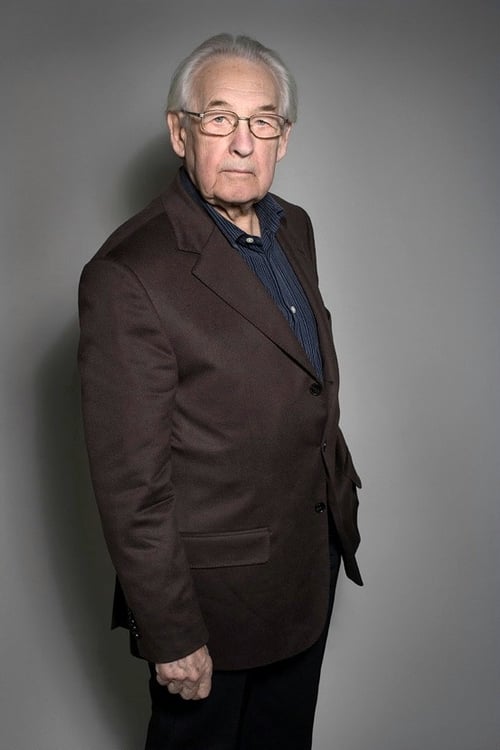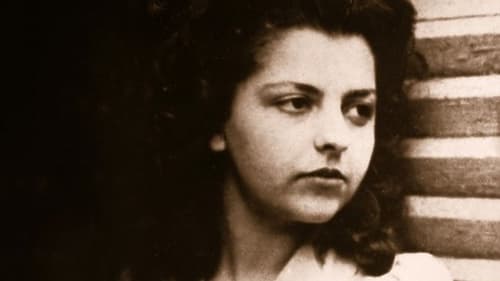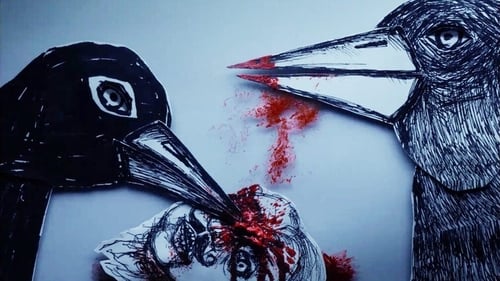
Old Man on the Train (voice)
Fleeing from despair after losing those dearest to him, the hero hides in a safe land of memories, where time stands still and all those dear to him are alive.

Co-Director
Shortly before his death, Marek Edelman (1919-2009), former commander of the Warsaw Ghetto Uprising (1943) against the Nazi occupation, wonders about several basic themes of human existence in relation to the Shoah: how was it possible to enjoy love, tenderness, passion and lust while the whole world was crumbling and burning around.

Self
A documentary celebrating the work of Walerian Borowczyk, a director of unparalleled sensitivity, revered in the 1970s, who was later labeled as a maker of erotic movies.

Director

Self
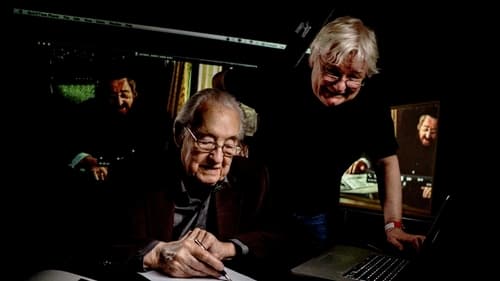
Self - Filmmaker
A few months before his death, Polish filmmaker Andrzej Wajda (1926-2016) revisited his work in an assembly room of the Andrzej Wajda Master School of Film Directing, established in Warsaw in 2002.
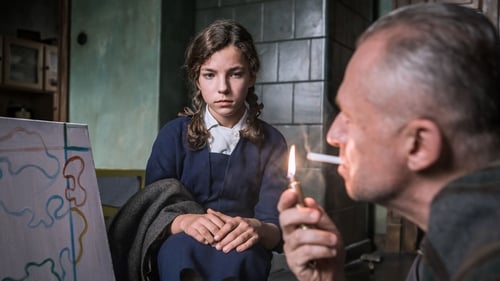
Writer
In 1945, as Stalin sets his hands over Poland, famous painter Wladislaw Strzeminski refuses to compromise on his art with the doctrines of social realism. Persecuted, expelled from his chair at the University, he's eventually erased from the museums' walls. With the help of some of his students, he starts fighting against the Party and becomes the symbol of an artistic resistance against intellectual tyranny.

Director
In 1945, as Stalin sets his hands over Poland, famous painter Wladislaw Strzeminski refuses to compromise on his art with the doctrines of social realism. Persecuted, expelled from his chair at the University, he's eventually erased from the museums' walls. With the help of some of his students, he starts fighting against the Party and becomes the symbol of an artistic resistance against intellectual tyranny.

Screenplay
Andrzej Wajda mentions Andrzej Wróblewski (1927-1957) as a painter and friend. It tells about a man facing the challenges of the epoch and dramatically searching for his space. Wróblewski, seen through the eyes of Wajda, is a genius who had to wait a long time for recognition, but also did not fully recognize his own greatness. Their paths crossed right after the war, when they both studied at the Academy of Fine Arts in Krakow. Born in Vilnius, the young artist studied at the faculty of painting and sculpture, he also studied art history at the Jagiellonian University. The film was produced on the occasion of the exhibition of the same title organized at the Manggha Museum of Japanese Art and Technology in Krakow in 2015.

Director
Andrzej Wajda mentions Andrzej Wróblewski (1927-1957) as a painter and friend. It tells about a man facing the challenges of the epoch and dramatically searching for his space. Wróblewski, seen through the eyes of Wajda, is a genius who had to wait a long time for recognition, but also did not fully recognize his own greatness. Their paths crossed right after the war, when they both studied at the Academy of Fine Arts in Krakow. Born in Vilnius, the young artist studied at the faculty of painting and sculpture, he also studied art history at the Jagiellonian University. The film was produced on the occasion of the exhibition of the same title organized at the Manggha Museum of Japanese Art and Technology in Krakow in 2015.

An abandoned tumbledown theater in the outback of Paraíba state is the initial setting of a film about cinema, which explores the testimonials of the novelist and playwright Ariano Suassuna and other filmmakers such as Ruy Guerra, Julio Bressane, Ken Loach, Andrzej Wajda, Karim Ainouz, José Padilha, Hector Babenco, Vilmos Zsigmond, Béla Tarr, Gus Van Sant and Jia Zhangke. They all respond to two basic questions: why do they make movies and why do they serve the seventh art. The filmmakers share their thoughts about time, narrative, rhythm, light, movement, the meaning of tragedy, the audience‘s desires and the boundaries with other forms of art.

Self

Self (archive footage)
An interview with film director Roman Polanski conducted during his period of house arrest, discussing his life and work.
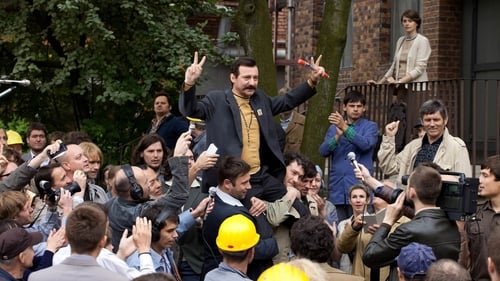
Director
How was it possible that a single man influenced contemporary world so significantly? This film is an attempt to capture the phenomenon of a common man’s metamorphosis into a charismatic leader — an attempt to see how a Gdansk shipyard electrician fighting for workers’ rights awakened a hidden desire for freedom in millions of people.

Screenplay
At the Old Theater in Krakow Wajda staged a play in 1971, based on Dostoevsky's novel "Demons". In this documentary Wajda tells the story of the unique play that went on uninterrupted for 10 years despite opposition from the authorities.

Director
At the Old Theater in Krakow Wajda staged a play in 1971, based on Dostoevsky's novel "Demons". In this documentary Wajda tells the story of the unique play that went on uninterrupted for 10 years despite opposition from the authorities.

Writer

Director
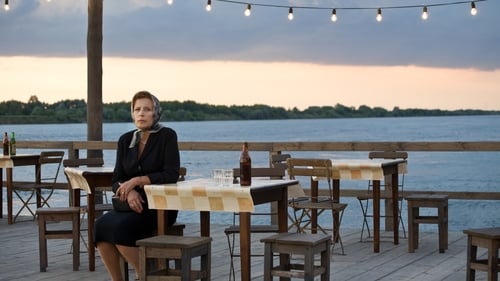
Himself
As an aging woman married to a workaholic doctor by chance meets a young man who makes her feel young again. All of this is films by a director making a film about her which cuts in and out of the on camera and off camera drama.

Screenplay
As an aging woman married to a workaholic doctor by chance meets a young man who makes her feel young again. All of this is films by a director making a film about her which cuts in and out of the on camera and off camera drama.

Director
As an aging woman married to a workaholic doctor by chance meets a young man who makes her feel young again. All of this is films by a director making a film about her which cuts in and out of the on camera and off camera drama.
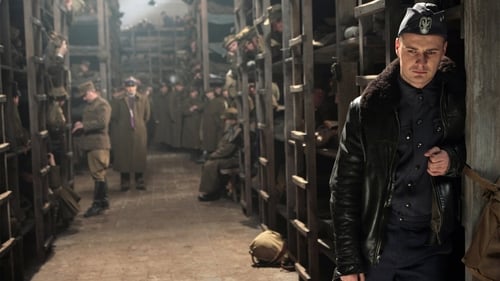
Screenplay
第二次世界大戦中、ソ連の秘密警察によってポーランド軍将校が虐殺された「カティンの森事件」を、ポーランドの巨匠アンジェイ・ワイダ監督が映画化した問題作。長い間明らかにされてこなかった同事件の真相を、ソ連の捕虜となった将校たちと、彼らの帰還を待ちわびる家族たちの姿を通して描く。父親を事件で殺された過去を持つワイダ監督が歴史の闇に迫った本作は、第80回アカデミー賞外国語映画賞ノミネートをはじめ、世界各地の映画祭で高く評価された。

Director
第二次世界大戦中、ソ連の秘密警察によってポーランド軍将校が虐殺された「カティンの森事件」を、ポーランドの巨匠アンジェイ・ワイダ監督が映画化した問題作。長い間明らかにされてこなかった同事件の真相を、ソ連の捕虜となった将校たちと、彼らの帰還を待ちわびる家族たちの姿を通して描く。父親を事件で殺された過去を持つワイダ監督が歴史の闇に迫った本作は、第80回アカデミー賞外国語映画賞ノミネートをはじめ、世界各地の映画祭で高く評価された。

Self
In February, 1945, Primo Levi (1919-1987) and other Auschwitz survivors set off for home. The journey took more then eight months. Sixty years later, a film crew retraces Levi's steps. Levi's words, mainly from "The Truce" (1963), tell us what he experienced. In turn, we see Poland's hollow post-war factories, nationalism in the Ukraine, Soviet-style Communism in Belarus, the abandoned town of Prypiat (Chernobyl), poverty and emigration from Moldavia, Italian factories in Romania, and on across Hungary and Slovakia to Munich where Levi's rage found no listeners. Then home to Turin. An aged Mario Rigoni Stern remembers his friend. What has changed? Some issues of the war remain unsettled.

Writer

Director

Self

Interviewer
Interview with political scientist and social activist Jan Nowak-Jezioranski by film director Andrzej Wajda.

Director
Interview with political scientist and social activist Jan Nowak-Jezioranski by film director Andrzej Wajda.

himself
Film about the work of Ukrainian film director Kira Muratova.
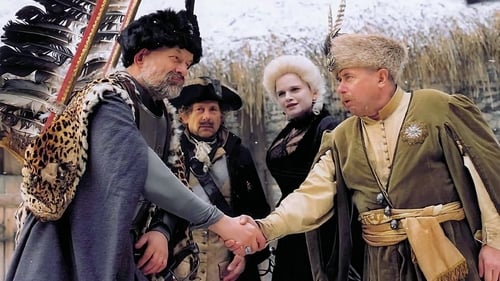
Screenplay
A winter day at a Polish castle, half owned by a fatalistic notary and half by a volcanic old soldier's niece. The old soldier, Cupbearer, and the notary are sworn enemies, which may doom the love between the niece, Klara, and the notary's son, Waclaw. On this day, the tongue-tied Cupbearer asks a braggart courtier, Papkin, to sue on his behalf for the hand of the widow Hanna. Papkin succeeds and

Director
A winter day at a Polish castle, half owned by a fatalistic notary and half by a volcanic old soldier's niece. The old soldier, Cupbearer, and the notary are sworn enemies, which may doom the love between the niece, Klara, and the notary's son, Waclaw. On this day, the tongue-tied Cupbearer asks a braggart courtier, Papkin, to sue on his behalf for the hand of the widow Hanna. Papkin succeeds and

Director
Andrzej Wajda documentary about Polish film.

Director
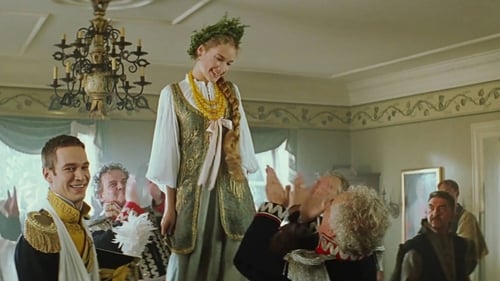
Screenplay
A grand and patriotic tale of Poland's struggle for freedom just before Napoleon's war with Russia. Written in poetic style by Adam Mickiewicz, this story follows two feuding Polish families as they overcome their old conflicts and petty lives. However, they are able to unite as one with their patriotic and rebellious efforts to free the country they deeply love from Russian control.

Director
A grand and patriotic tale of Poland's struggle for freedom just before Napoleon's war with Russia. Written in poetic style by Adam Mickiewicz, this story follows two feuding Polish families as they overcome their old conflicts and petty lives. However, they are able to unite as one with their patriotic and rebellious efforts to free the country they deeply love from Russian control.
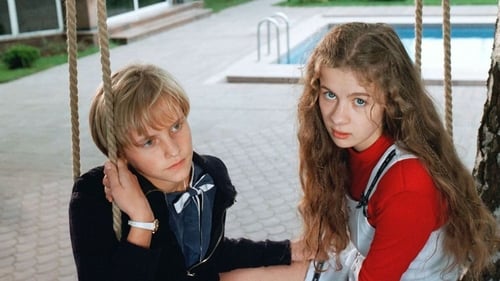
Director
A devout Catholic peasant girl is corrupted by two new friends when her family moves to the city. An allegory of traditional Polish values under threat from materialism and decadence in the post-Communist era.
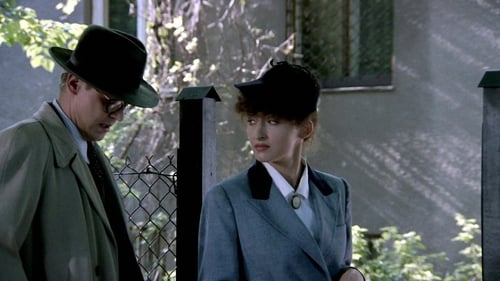
Writer
During the Nazi era, a Jewish woman on the run takes a trolley which passes near the Warsaw ghetto, where the uprising battle is taking place, and some passengers are struck by stray bullets. They take temporary refuge in an empty building, and there she has a chance meeting with her ex-fiancé. He offers to put her up--that is, hide her--for a few days. He's now married, a professional who lives in an idyllic suburb reached by a trolley that runs through the woods. His wife seems more committed to putting up the fugitive than he is. The story involves the neighbors, the building owner who avoids involvement and seeks solace in classic poetry, and the super and his suspicious wife.

Director
During the Nazi era, a Jewish woman on the run takes a trolley which passes near the Warsaw ghetto, where the uprising battle is taking place, and some passengers are struck by stray bullets. They take temporary refuge in an empty building, and there she has a chance meeting with her ex-fiancé. He offers to put her up--that is, hide her--for a few days. He's now married, a professional who lives in an idyllic suburb reached by a trolley that runs through the woods. His wife seems more committed to putting up the fugitive than he is. The story involves the neighbors, the building owner who avoids involvement and seeks solace in classic poetry, and the super and his suspicious wife.

Writer
Andrzej Wajda's Japanese-language film based on the last chapter of Dostoevsky's Idiot, in which Prince Myshkin and Rogozhin return to the past in a conversation over the dead body of Nastassya Filippovna. Bando Tamasaburo, regarded as one of the most outstanding female impersonators in Japanese theater, plays the dual role of Myshkin and Nastassya.

Director
Andrzej Wajda's Japanese-language film based on the last chapter of Dostoevsky's Idiot, in which Prince Myshkin and Rogozhin return to the past in a conversation over the dead body of Nastassya Filippovna. Bando Tamasaburo, regarded as one of the most outstanding female impersonators in Japanese theater, plays the dual role of Myshkin and Nastassya.

Director
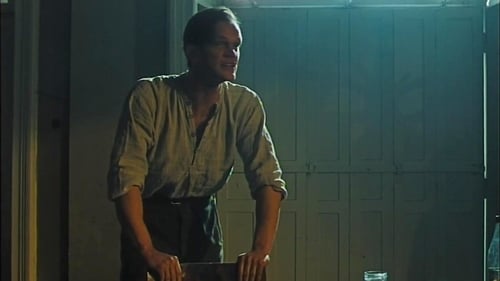
Writer
A Polish Resistance fighter who survived the Nazi years cannot accept the new Communist power.

Director
A Polish Resistance fighter who survived the Nazi years cannot accept the new Communist power.
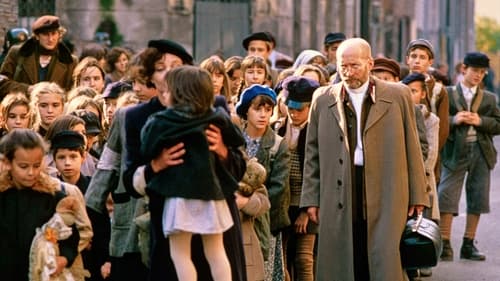
Director
The story of Polish pedagogue Janusz Korczak and his dedication to protecting Jewish orphans during the war.
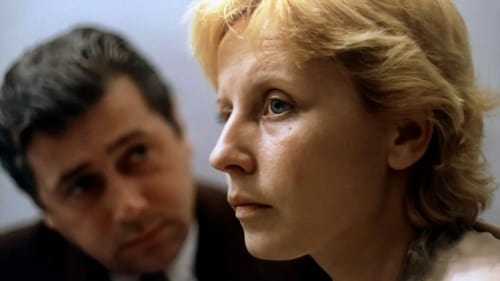
Executive Producer
In Stalinist Poland, cabaret singer Tonia decides to spend the evening drinking with a group of friends. The next morning, she awakes to find that, for reasons unknown to her, she has been jailed as a political prisoner. As prison officials interrogate, torture and humiliate her, she fights for survival and to maintain her innocence by refusing to sign a false confession. As her years of imprisonment pass, her relationship with her captors grows more complicated.

Producer
In Stalinist Poland, cabaret singer Tonia decides to spend the evening drinking with a group of friends. The next morning, she awakes to find that, for reasons unknown to her, she has been jailed as a political prisoner. As prison officials interrogate, torture and humiliate her, she fights for survival and to maintain her innocence by refusing to sign a false confession. As her years of imprisonment pass, her relationship with her captors grows more complicated.

Director
In 1988, Figaro magazine asked a few famous directors to direct a series of short movies to celebrate the 10 years of the revue. The movies have been released for the French revolution bicentenary. Includes: Werner Herzog's Les Gaulois, David Lynch's The Cowboy and the Frenchman, Andrzej Wajda's Proust contre la déchéance, Luigi Comencini's Pèlerinage à Agen, Jean-Luc Godard's Le dernier mot.

Screenplay
Russia, 1870. A group of young anarchist revolutionaries set out to overthrow the Czarist regime through violence. Their attacks create a climate of psychosis and mutual distrust among the population, but in reality, both revolutionaries and repressors are being manipulated by a diabolical individual.

Director
Russia, 1870. A group of young anarchist revolutionaries set out to overthrow the Czarist regime through violence. Their attacks create a climate of psychosis and mutual distrust among the population, but in reality, both revolutionaries and repressors are being manipulated by a diabolical individual.

Writer
Set in the summer months preceding the September 1939 outbreak of World War II in Polish part of Lithuania. A young highschool lad, Witek, is hoping to pass the entrance exams to the university. His love interest is Alina, his high-school colleague.

Director
Set in the summer months preceding the September 1939 outbreak of World War II in Polish part of Lithuania. A young highschool lad, Witek, is hoping to pass the entrance exams to the university. His love interest is Alina, his high-school colleague.

Screenplay
In May of 1983, a man turns 49 and, with his 17-year old son, journeys to the village in Baden that he left 40 years before. He wants to discover what happened then, the truth about an affair his mother had with a young Polish prisoner of war, how the authorities came to learn of it, the lovers' arrest, and the aftermath. While his son takes Polaroid photographs, he retraces the steps of his childhood and interviews those who should remember. The story is disclosed in flashbacks that focus on the lovers (Paulina and Stanislaus), on a jealous and conniving neighbor, and on Mayer, the local SS commander who wants to find a way out of inevitable consequences.

Director
In May of 1983, a man turns 49 and, with his 17-year old son, journeys to the village in Baden that he left 40 years before. He wants to discover what happened then, the truth about an affair his mother had with a young Polish prisoner of war, how the authorities came to learn of it, the lovers' arrest, and the aftermath. While his son takes Polaroid photographs, he retraces the steps of his childhood and interviews those who should remember. The story is disclosed in flashbacks that focus on the lovers (Paulina and Stanislaus), on a jealous and conniving neighbor, and on Mayer, the local SS commander who wants to find a way out of inevitable consequences.
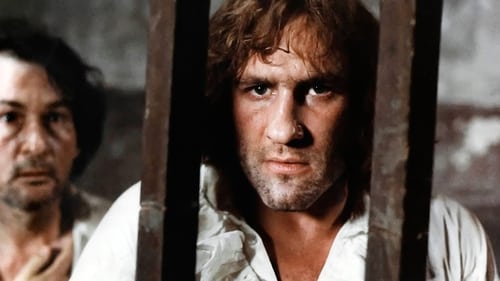
Screenplay
Danton and Robespierre were close friends and fought together in the French Revolution, but by 1793 Robespierre was France's ruler, determined to wipe out opposition with a series of mass executions that became known as the Reign of Terror. Danton, well known as a spokesman of the people, had been living in relative solitude in the French countryside, but he returned to Paris to challenge Robespierre's violent rule and call for the people to demand their rights. Robespierre, however, could not accept such a challenge, even from a friend and colleague, and he blocked out a plan for the capture and execution of Danton and his allies.

Director
Danton and Robespierre were close friends and fought together in the French Revolution, but by 1793 Robespierre was France's ruler, determined to wipe out opposition with a series of mass executions that became known as the Reign of Terror. Danton, well known as a spokesman of the people, had been living in relative solitude in the French countryside, but he returned to Paris to challenge Robespierre's violent rule and call for the people to demand their rights. Robespierre, however, could not accept such a challenge, even from a friend and colleague, and he blocked out a plan for the capture and execution of Danton and his allies.
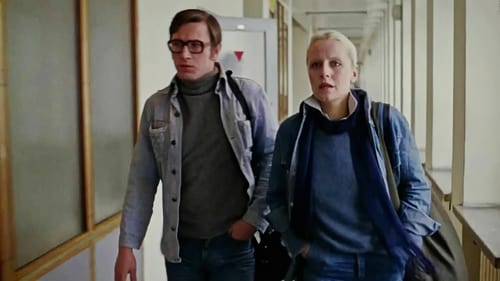
Director
In Warsaw in 1980, the Communist Party sends Winkel, a weak, alcoholic TV hack, to Gdansk to dig up dirt on the shipyard strikers, particularly on Maciek Tomczyk, an articulate worker whose father was killed in the December 1970 protests. Posing as sympathetic, Winkel interviews the people surrounding Tomczyk, including his detained wife, Agnieszka.
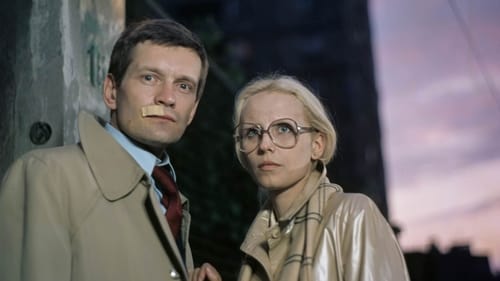
Director
A violinist in a provincial Polish orchestra, whose husband is the director of the ensemble, on a visit to the US ties up with the world- renowned symphony conductor. As it turns out he was once in love with violinist's mother. The conductor, a slightly unstable hypochondriac, returns to Poland to lead the provincial orchestra. He also tries to revive old love affair using the violinist as a surrogate of her mother. Her husband is resentful of the conductor for both personal and professional reasons.
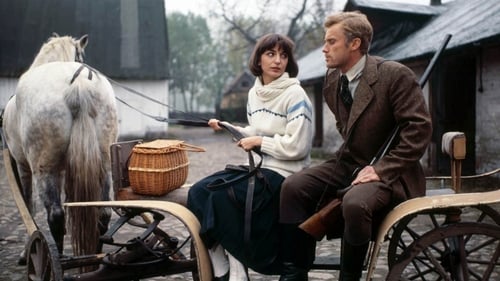
Director
Set in the late '20s. A thirtyish young man, who heads a small factory, faints at the funeral of a close friend. He decides to go home to his aunt and uncle for a while, but gets involved with a family of five women who had been in love with him at one time though he had apparently loved only one, who, unknown to him, has died since his departure. The women are mainly disillusioned with life or estranged from husbands while the youngest has a crush on him.

Director

Screenplay
A famous Polish journalist presents a problem for the powers-that-be when he displays his full political skill and knowledge on a television show featuring questions and answers on a world conference by a panel of journalists. His enemies take away his privileges when he is away. The shock of being "unwanted" parallels a deeper disappointment in his private life: his wife has an affair with a jealous young rival, and after 15 years of marriage and two daughters wants a divorce. She offers no explanations as he tries to untie these problems himself. All the moves he makes are the wrong ones. He takes on drinking heavily with students eager to attend his seminar after discovering the class has been canceled. The journalist, once suave and commanding is reduced to silence.

Director
A famous Polish journalist presents a problem for the powers-that-be when he displays his full political skill and knowledge on a television show featuring questions and answers on a world conference by a panel of journalists. His enemies take away his privileges when he is away. The shock of being "unwanted" parallels a deeper disappointment in his private life: his wife has an affair with a jealous young rival, and after 15 years of marriage and two daughters wants a divorce. She offers no explanations as he tries to untie these problems himself. All the moves he makes are the wrong ones. He takes on drinking heavily with students eager to attend his seminar after discovering the class has been canceled. The journalist, once suave and commanding is reduced to silence.
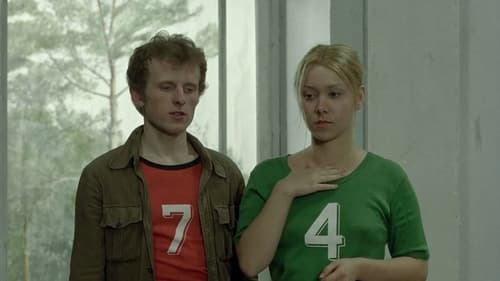
występuje w roli samego siebie
Three-part film centered around a film being made by a group of young directors. In the first a working-class girl finishes school and has her first love affair, which ends badly. In the second a provincial boy with dreams of life in the theater has an affair with his boss' wife. They meet during the film's screen tests.
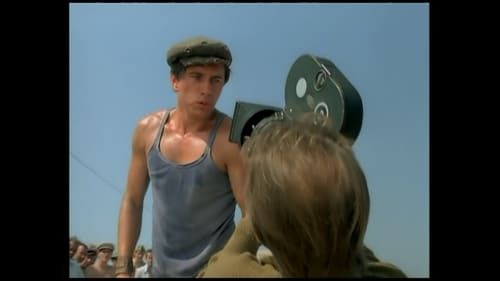
Producer
Man of Marble is a Polish film about a student making a film about a bricklayer who was once idolized. She interviews people who knew him and finds old footage that lead to an unfolding mystery that causes her producer to cancel the project.

Director
Man of Marble is a Polish film about a student making a film about a bricklayer who was once idolized. She interviews people who knew him and finds old footage that lead to an unfolding mystery that causes her producer to cancel the project.
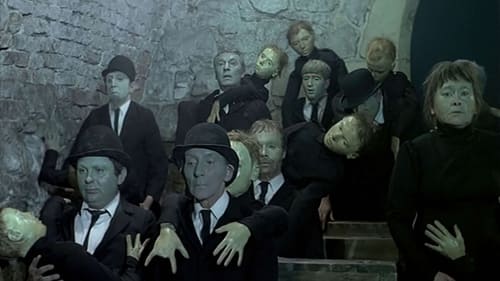
Writer
The Dead Class (1975), by Tadeusz Kantor and the Cricot 2 company, is considered one of the most innovative and influential works of twentieth-century theatre. The breakthrough first version of the production - performed to great critical acclaim, but only rarely seen live by audiences outside Poland - was documented on film in 1976 by the Oscar-winning director Andrzej Wajda.

Director
The Dead Class (1975), by Tadeusz Kantor and the Cricot 2 company, is considered one of the most innovative and influential works of twentieth-century theatre. The breakthrough first version of the production - performed to great critical acclaim, but only rarely seen live by audiences outside Poland - was documented on film in 1976 by the Oscar-winning director Andrzej Wajda.
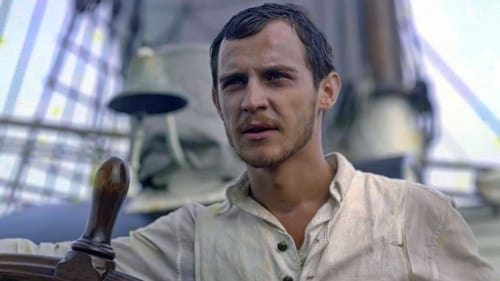
Writer
Andrzej Wajda's English-language film of a novella by Józef Teodor Konrad Korzeniowski, aka Joseph Conrad, about a young man in his first command as a sea captain. A series of crises prove incredibly difficult for his new authority, for the sea is curiously becalmed and the crew is weakened by feverish malaria. When the first mate's fear convinces many that the ship is haunted and cursed by the malevolent spirit of the previous captain, the young man must cope with their superstition as well as the conspicuous absence of much-needed medicine.

Director
Andrzej Wajda's English-language film of a novella by Józef Teodor Konrad Korzeniowski, aka Joseph Conrad, about a young man in his first command as a sea captain. A series of crises prove incredibly difficult for his new authority, for the sea is curiously becalmed and the crew is weakened by feverish malaria. When the first mate's fear convinces many that the ship is haunted and cursed by the malevolent spirit of the previous captain, the young man must cope with their superstition as well as the conspicuous absence of much-needed medicine.
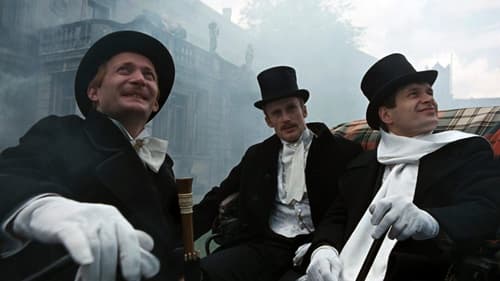
Screenplay
The Polish film based on the book of the same name by Wladyslaw Reymont. Taking place in the nineteenth century town of Łódź, Poland, three friends want to make a lot of money by building and investing in a textile factory. An exceptional portrait of rapid industrial expansion shown through the eyes of one Polish town.

Director
The Polish film based on the book of the same name by Wladyslaw Reymont. Taking place in the nineteenth century town of Łódź, Poland, three friends want to make a lot of money by building and investing in a textile factory. An exceptional portrait of rapid industrial expansion shown through the eyes of one Polish town.
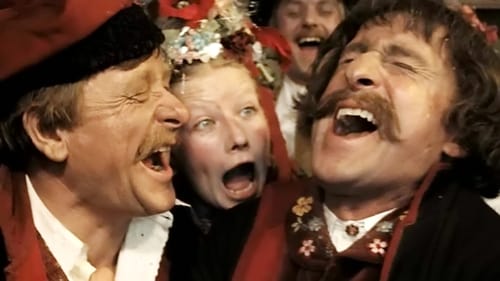
Director
Set at the turn of the century, the story concerns a Polish poet living in Cracow who has decided to marry a peasant girl. The wedding is attended by a heterogenous group of people from all strata of Polish society, who dance, get drunk and lament Poland's 100-year-long division under Russia, Prussia, and Austria. The bridegroom, a painter friend, and a journalist each in turn is confronted with spectres of Polish past. In the end a call to arms is called but turns out to be a hoax.
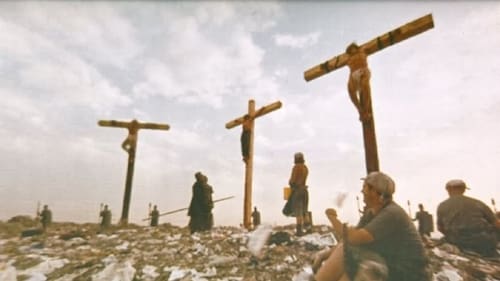
reporter (nie występuje w napisach)
The trial of Yeshua Ha-Notsri is led by prosecutor Pontius Pilate who believes in the innocence of the accused but is forced to sentence him to death. This biblical story is set in present-day Germany.

Director
The trial of Yeshua Ha-Notsri is led by prosecutor Pontius Pilate who believes in the innocence of the accused but is forced to sentence him to death. This biblical story is set in present-day Germany.

Writer
Based on a novella by Ivan Turgenev, Pierwsza milosc is the story of a 15 year old boy and a 21 year old girl who develop an ill-fated romance.

Writer
Takes place in a prewar Poland. A tubercular young man comes to stay with his brother on a farm. He is in love with life and constantly plays 1930's music on a piano. He gets involved with his brother's problems and also becomes the lover of a simpleminded farm girl. The brother's dead wife may have had an affair with the hired man who is to marry the farm girl. His daughter will not confirm his suspicions. But the brother's death leads to his acceptance of the past, forgiving his wife's memory and making up with his little daughter.

Director
Takes place in a prewar Poland. A tubercular young man comes to stay with his brother on a farm. He is in love with life and constantly plays 1930's music on a piano. He gets involved with his brother's problems and also becomes the lover of a simpleminded farm girl. The brother's dead wife may have had an affair with the hired man who is to marry the farm girl. His daughter will not confirm his suspicions. But the brother's death leads to his acceptance of the past, forgiving his wife's memory and making up with his little daughter.
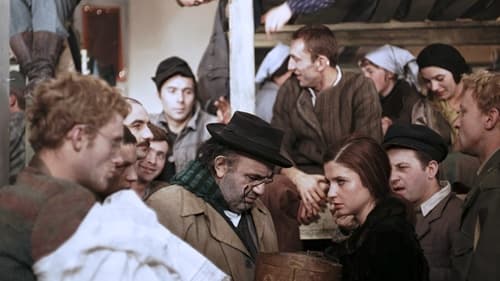
Writer
Film opens with the mad rush of haphazard freedom as the concentration camps are liberated. Men are trying to grab food, change clothes, bury their tormentors they find alive. Then they are herded into other camps as the Allies try to devise policy to control the situation. A young poet who cannot quite find himself in this new situation, meets a headstrong Jewish young girl who wants him to run off with her, to the West. He cannot cope with her growing demands for affection, while still harboring the hatred for the Germans and disdain for his fellow men who quickly revert to petty enmities.

Director
Film opens with the mad rush of haphazard freedom as the concentration camps are liberated. Men are trying to grab food, change clothes, bury their tormentors they find alive. Then they are herded into other camps as the Allies try to devise policy to control the situation. A young poet who cannot quite find himself in this new situation, meets a headstrong Jewish young girl who wants him to run off with her, to the West. He cannot cope with her growing demands for affection, while still harboring the hatred for the Germans and disdain for his fellow men who quickly revert to petty enmities.

Director
Wlodek is a young man stuck in a dead-end job at the local library who lives with his harridan wife and critical in-laws in a small apartment. When Wlodek draws the interest of a library patron, the beautiful young woman encourages him to strive for better things in his life and professional career. Together, the two take off for a three-day affair, but surprises could await Wlodek upon his return home.
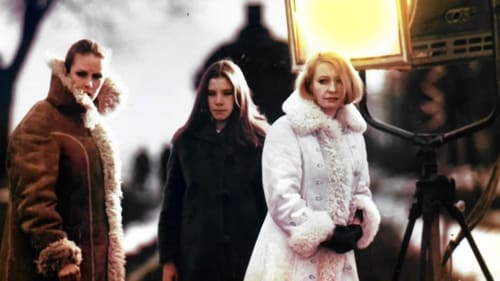
Writer
Wajda's homage to Zbigniew Cybulski, the "Polish James Dean" who starred in the director's ASHES AND DIAMONDS and died young. The movie follows the tribulations of a director attempting to make a movie with a Cybulski-like star who never shows up.

Director
Wajda's homage to Zbigniew Cybulski, the "Polish James Dean" who starred in the director's ASHES AND DIAMONDS and died young. The movie follows the tribulations of a director attempting to make a movie with a Cybulski-like star who never shows up.
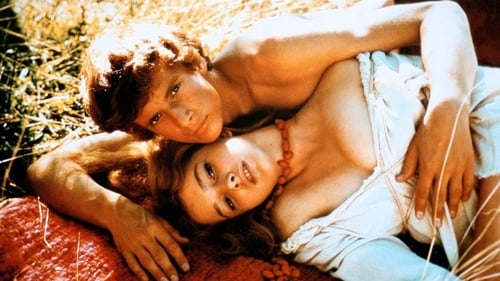
Director
In 1212, a Children's Crusade is launched after a young shepherd, Jacques de Cloyes, claims to have had a vision in which it is said that the innocence of children would be able to liberate Jerusalem. A monk, returning from Holy Land, joins the crusade and hears the children's confessions, gradually realizing that most of them are taking part not for religious, but for more worldly reasons, like rejected love and hopes for freedom.
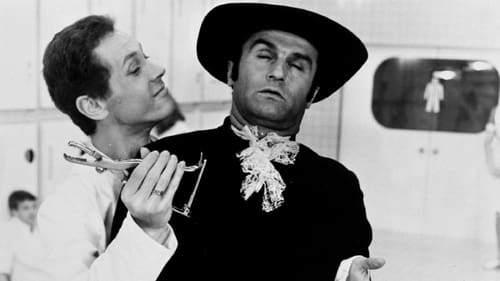
Director
Based on the novel by Stanislaw Lem (Solaris). The main character, race car driver Ryszard Fox, is involved in many car accidents. After each car crash he gets a transplant for one or another internal organ. After a while there is a question: Who really is Ryszard Fox?
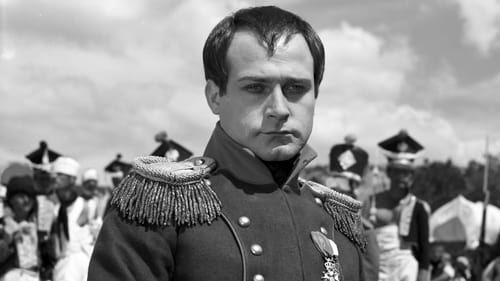
Director
Set in the time of Napoleon wars, shows how the wars swept over the unfortunate Polish country at the beginning of the XIX-th century. Story revolves around the Polish legion under command of General Dabrowski, who then fought on Napoleon's side with the hopes of Poland's revival.
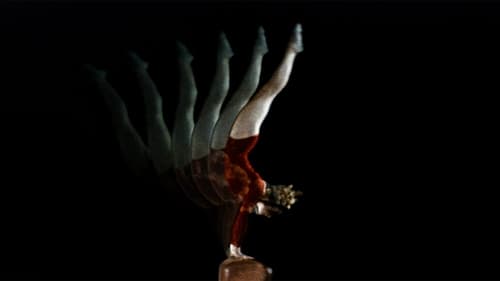
Thanks
1964年10月10日。聖火ランナーが満場の国立競技場に到着すると、第18回夏季オリンピックが開会する。短距離走、走高跳、砲丸投、棒高跳、走幅跳、体操、水泳、ウエイトリフティング、レスリング、柔道、射撃、自転車競技、“東洋の魔女”と呼ばれる全日本チームが活躍した女子バレーボールなど、白熱した名勝負の数々に、世界中から集まった観客が歓声を上げる。
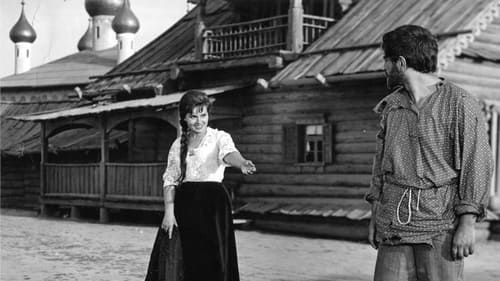
Director
A ruthless woman's adulterous affair with a drifter sets in motion a chain-reaction of murder and deception in a remote village in 19th Century Mtsensk.

Director
A segment of “Love at Twenty” tells the story of a man who rescued a child from a polar bear attack.
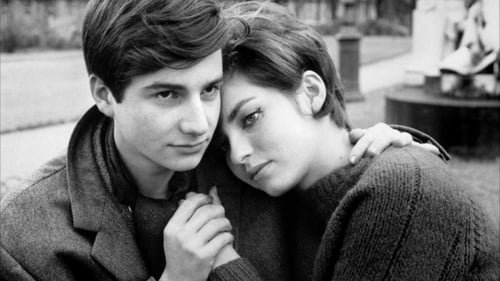
Director
Love at Twenty unites five directors from five different countries to present their different perspectives on what love really is at the age of 20. The episodes are united with the score of Georges Delerue and still photos of Henri Cartier-Bresson.

Writer
Sampson is one of several Andrzej Wajda films harking back to his youth during the Nazi Occupation of Poland. Many of these concern not only the struggle between good and evil, but also between passive and impassive. The hero is a Jewish youth. He, like his family, has always been silent and undemonstrative in the face of prejudice. Now he stands up for his right to survive, and in so doing represents the fighting spirit that culminated in the 1943 Warsaw Uprising. It was originally titled Samson, but re-spelled as Sampson upon its American release to avoid confusion with a sword-and-sandal epic of the same name.

Director
Sampson is one of several Andrzej Wajda films harking back to his youth during the Nazi Occupation of Poland. Many of these concern not only the struggle between good and evil, but also between passive and impassive. The hero is a Jewish youth. He, like his family, has always been silent and undemonstrative in the face of prejudice. Now he stands up for his right to survive, and in so doing represents the fighting spirit that culminated in the 1943 Warsaw Uprising. It was originally titled Samson, but re-spelled as Sampson upon its American release to avoid confusion with a sword-and-sandal epic of the same name.
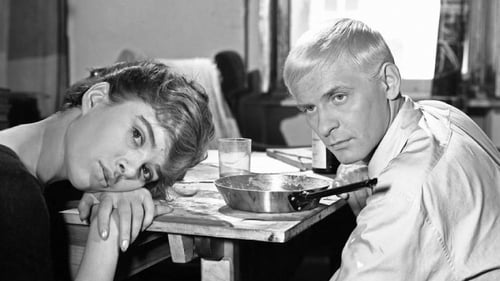
Director
A young doctor is tired of being sought by women. One night he meets a young girl who all but forces herself into his room where they talk of morals and love. But he loses her when he goes out to see some friends and then rushes madly around the city after her.

Writer
Set in the beginning of Wold War II, when the Polish cavalry still fought with lances against German troops. LOTNA is about a white thoroughbred horse that passed through various hands in a military outfit.

Director
Set in the beginning of Wold War II, when the Polish cavalry still fought with lances against German troops. LOTNA is about a white thoroughbred horse that passed through various hands in a military outfit.
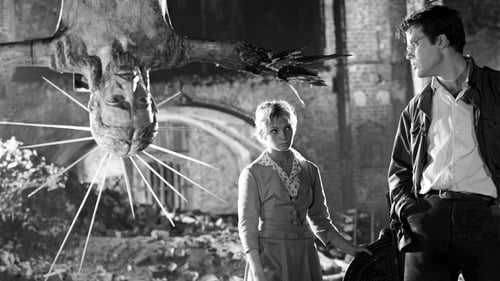
Screenplay
第二次世界大戦末期、ポーランド。反ソ派テロリストのマチェック(チブルスキー)は、ソ連から来た共産地区委員長暗殺の指令を受ける。しかし、誤って別の男二人を殺してしまう。「世代」「地下水道」に続くワイダの戦争三部作。モノクロの画面の中、虫けらのように儚く消えてゆく青年の命。その空しい死に様は、観る者を絶句させずにはおかない。

Director
第二次世界大戦末期、ポーランド。反ソ派テロリストのマチェック(チブルスキー)は、ソ連から来た共産地区委員長暗殺の指令を受ける。しかし、誤って別の男二人を殺してしまう。「世代」「地下水道」に続くワイダの戦争三部作。モノクロの画面の中、虫けらのように儚く消えてゆく青年の命。その空しい死に様は、観る者を絶句させずにはおかない。
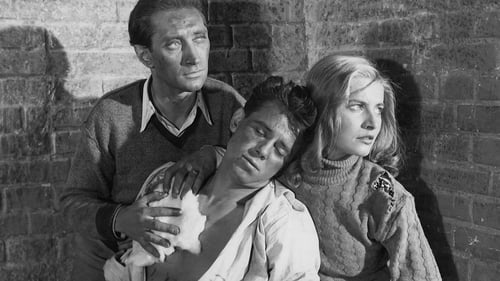
Director
'44年、ソ連軍の進軍近しと判断したロンドンの亡命政府の指令で敢行されたワルシャワ蜂起。しかし20万もの犠牲を出す壊滅的打撃を受け、レジスタンスたちは地下水道へと逃げ込む。物語は、ほぼ全編、その地下水道の中で出口のない、あるいはあっても出られない緊迫感を持って繰り広げられる。語られる人間ドラマもさることながら、その状況こそが当時のポーランドの姿そのものの暗示であった。脚本のスタビンスキーの実体験に基づく、衝撃的な青春の物語。'57年カンヌで審査員特別賞に輝いた。
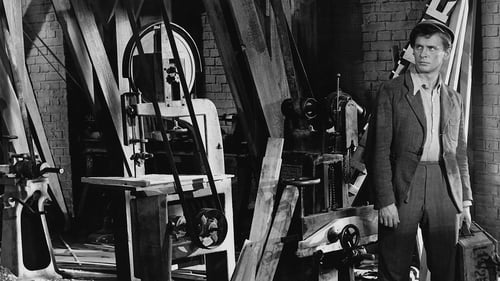
Director
ナチ支配下のポーランド。石炭を盗むのが生業の若者が、仲間を独軍の機銃掃射で失い、自分も傷ついたところを工員の青年に助けられる。彼を通じて抵抗運動の女性闘士を知った若者は彼女に恋するが、やがて彼女にも悲劇が訪れる……。脇役で出演もしているポランスキーをして“この作品でポーランド映画のすべてが始まった”と言わしめた、ワイダの長編処女作。後に「地下水道」「灰とダイヤモンド」と続く“抵抗三部作”の最初の作品。まだ演出には生硬な所があるが、感情を一気に衝撃的なラストまで高めていく剛腕は彼ならではのものだ。

Writer
A documentary about the sculptor Xawery Dunikowski, shot in his workshop. Director paid a tribute to the artist - a recluse without the artistic inheritors.

Director
A documentary about the sculptor Xawery Dunikowski, shot in his workshop. Director paid a tribute to the artist - a recluse without the artistic inheritors.

Writer

Writer
A documentary about the night life in a city. While some sleep, others work.

Director
A documentary about the night life in a city. While some sleep, others work.

Director
First short film by Wajda, based on the story "A Naughty Boy" by A. Chekhov.

Writer
Andrzej Wajda's first movie looks at the pottery in the town of Iłża, Poland. Much of it shows the actual process of creating all the objects out of clay.

Director
Andrzej Wajda's first movie looks at the pottery in the town of Iłża, Poland. Much of it shows the actual process of creating all the objects out of clay.

Self
Andrzej Munk was one of the leading directors in Polish cinema. Friends and collaborators share their memories about this stunning artist and his premature tragic death.

himself
The main character of "Żyłem siedemnaście razy" reflects on his childhood in Gwoździec and tells a story about the beginning of his career as a filmmaker.

Writer

Director
